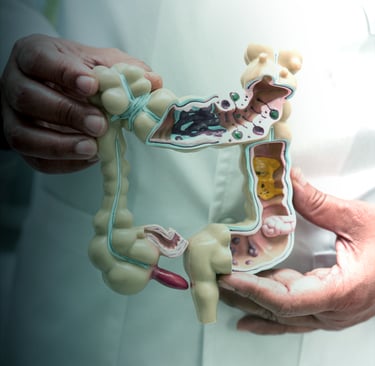The Gut–Brain Connection Is Real: Microbiome Research Reaches Clinical Trials, Reshaping Health
The gut–brain axis is no longer just theory — it’s now reshaping mental health, immunity, and chronic disease treatment as large-scale microbiome clinical trials roll out worldwide. Learn how personalized probiotics and precision nutrition are turning your gut into a key player for holistic well-being. Explore the latest breakthroughs and what they mean for your second brain.
6/23/20252 min read


Jakarta, Indonesia – For years, the human gut was primarily understood as the engine room for digestion. Today, it's being hailed as the body's "second brain," and emerging research into the intricate gut-brain axis is profoundly reshaping our understanding of mental health, immunity, and chronic disease. The exciting news for June 2025 is that microbiome research has officially entered large-scale clinical trials globally, with scientists exploring everything from innovative next-generation probiotics to precision dietary therapies aimed at optimizing this critical gut-brain connection.
What’s New? A Paradigm Shift in Understanding Health
The realization that our gut microbiome—the trillions of microorganisms living in our digestive tract—plays a pivotal role in far more than just nutrient absorption has opened up entirely new avenues for health intervention. This year marks a significant milestone as groundbreaking microbiome research moves from the lab into extensive human clinical trials across the U.S., Europe, and Japan, signaling a new era of personalized and targeted health solutions.
Key Areas of Breakthrough
Leading the charge in this scientific frontier are several promising areas:
Gut-Brain Axis Therapies: Studies are increasingly linking the composition and function of gut bacteria to neurological and psychological conditions such as anxiety, depression, Alzheimer’s, and even Parkinson’s disease. Early-stage treatments in clinical trials are now specifically designed to target these complex pathways through microbial modulation.
Personalized Probiotics: The era of "one-size-fits-all" probiotics is fading. New research focuses on developing customized bacterial strains tailored to an individual's unique microbiome profile. This bespoke approach promises more effective outcomes for improving digestion, bolstering immunity, and reducing inflammation.
Food as Precision Medicine: Beyond generic dietary advice, cutting-edge research demonstrates that personalized diets, formulated based on an individual's specific microbiome composition, can significantly enhance mental clarity, regulate blood sugar levels, and improve sleep cycles. This truly transforms food into a powerful tool for precision health.
"Your microbiome may be as important to your mental health as your brain itself," emphasizes Dr. Naomi Feldman, a leading researcher in microbiota-neuroimmune studies, highlighting the profound implications of this evolving field.
Why This Matters
The widespread impact of microbiome research on human health is undeniable:
Immune System Powerhouse: Over 70% of our immune system resides in the gut, making a healthy microbiome crucial for robust immunity.
Direct Communication: Gut bacteria communicate directly with the brain via the vagus nerve and produce vital neurotransmitters, influencing mood and cognitive function.
Non-Drug Alternatives: With millions globally suffering from chronic gut and mood disorders, this research offers potential non-pharmacological alternatives and complementary therapies.
The journey from understanding the gut's intricate ecosystem to developing targeted interventions is well underway, promising a future where our "second brain" plays a central role in holistic well-being.
Keywords: Microbiome 2025, Gut Brain Axis, Second Brain, Mental Health Research, Personalized Probiotics, Health Innovation, Precision Nutrition, Gut Health, Clinical Trials, Probiotics, Dietary Therapy, Immunity, Chronic Disease, Neuroscience, Bio Personalized Nutrition



